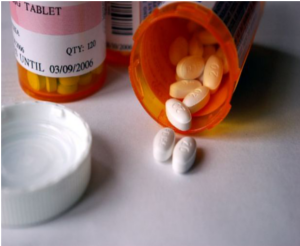
From 2nd March 2015 there will be a new drug driving law in England and wales, it will be an offence to drive while your ability is impaired by illegal drugs or certain medications.
Why do we need a new law?
The law is designed to deter or catch drivers who risk other people’s lives by getting behind the wheel after taking illegal drugs or abusing medication.
What Drugs are covered by the change?
The new law sets very low limits for 8 illegal drugs
Cannabis (THC)
Cocaine (and a cocaine metabolite, BZE)
MDMA (Ecstasy)
Lysergic Acid Diethylamide (LSD)
Ketamine
Heroin/diamorphine metabolite (6-MAM)
MethylamphetamineIt
What Medications are covered by the change?
The new law also covers some licensed medicines that are commonly abused. However the legal limits for these medications are set above the legally prescribed dosages for legitimate users.
Clonazepam
Flunitrazepam (No longer licenced in the UK.)
Oxazepam
Diazepam
Lorazepam
Temazepam
Methadone
Morphine*
*This includes opiate and opioid-based drugs such as Dihydrocodeine,Codeine phosphate, Codeine Linctus and Nurofen Plus.
If I take this medication will I be breaking the law if I drive?
It is a driver’s responsibility to decide whether they consider their driving is, or they believe might be, impaired on any given occasion.
Robert Goodwill MP, Road Safety Minister, says as long as they stay within prescribed levels, most people will still be able to get behind the wheel of a car.
"If you are taking your medicine as directed and your driving is not impaired, then you are not breaking the law and there is no need to worry," he said.
"We advise anyone who is unsure about the effects of their medication or how the new legislation may affect them, to seek the advice of their doctor or pharmacist.
What happens if I am stopped and tested?
"There will also be a medical defence if a driver has been taking medication as directed and is found to be over the limit but not impaired.”
"Drivers who are taking prescribed medication at high doses [are advised] to carry evidence with them, such as prescriptions slips, when driving in order to minimise any inconvenience should they be asked to take a test by the police."
What should I do if I’m not sure?
Professor David Taylor, Royal Pharmaceutical Society spokesperson and member of the Department for Transport advisory panel on drug driving said:
Don’t stop taking your medicines, prescribed or otherwise, if you are worried about this new law. Instead, talk to your doctor or pharmacist for information about how your medicines might affect your ability to drive. They’ll be happy to give you the advice you need to stay safe.
What if I don’t live in England and wales?
This law doesn’t cover Northern Ireland and Scotland but you could still be arrested if you’re unfit to drive.
Contact us
If you have any questions on this subject you can contact Clear Chemist for advice from one of our pharmacists.
pharmacists@clearchemist.co.uk
http://www.clearchemist.co.uk/contact-us
Further Information
https://www.gov.uk/government/news/drug-drive-legislation-am-i-fit-to-drive
http://think.direct.gov.uk/drug-driving.html













